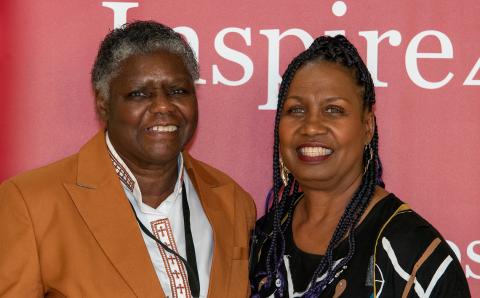Succession
Reviewed by Daniel Jung
Succession just completed its third season on HBO after taking a couple of years off during the pandemic. It was worth the wait.
Nominated this year for 25 Primetime Emmys (the most for any show this year), including Outstanding Drama Series, the show follows members of the Roy family as they manage patriarch Logan Roy’s multibillion-dollar media conglomerate. On the surface, the storyline and the characters seem distant and unrelatable. How much can the average viewer relate to the power struggles that come with dividing a vast media empire? How much empathy can we have for the superelite of society as they contend with their problems over $1,000 dinners served on million-dollar private jets? The characters are, at face value, rich degenerates whose selfishness and arrogance cause negative ripple effects through all of society.
But the best TV shows, regardless of their storylines’ absurdity, cause us to see the devil and angel that exist in all of us. It’s why we relate to seemingly unrelatable characters and make such huge emotional investments in the leader of a North Jersey organized crime syndicate (The Sopranos) or an estranged princess/mother of dragons (Game of Thrones). Like Succession, these stories are far from the experiences of most people, yet at the core they speak to common themes of family, betrayal, heartbreak, and the never-ending pit of the human heart.
In one scene, the son of family servants is offered $1 million to hit a home run at a meaningless family softball game. His hopeful parents look on as their son, who is barely old enough to understand this life-changing offer, fails the challenge. Though we might feel disgust as the family lawyer asks the servants to sign a nondisclosure agreement, we can all relate to looking after our own selfish interests at the expense of others. The more I have watched, the more enveloped I have become. The Roy family’s personal struggles, I realized, are just like mine, but on a much larger scale.
Succession is a continual reminder of the Old Testament wisdom book Ecclesiastes, in which the teacher reminds us that everything under the sun is meaningless, “a chasing after the wind” (Eccles. 1:14). No matter the wealth, influence, and power one family can wield, the basic depravity of humankind is inescapable. Succession offers the Christian viewer an extravagant reflection of the sandcastles of identity we all work furiously to create and sustain. I hope it also points us to our continual need for a Savior. (HBO; rated TV-MA for language and drug use)
Dinner on Domingos
By Alexandra Katona, illustrated by Claudia Navarro
Reviewed by Sonya VanderVeen Feddema
Every Sunday for lunch, a young girl goes to Abuelita’s casa—her grandmother’s house. The girl’s aunts, uncles, and cousins join the family get-together, enjoying each other’s company and helping out as Abuelita takes the lead in preparing traditional Ecuadorian locro, a soup made from potatoes, onion, garlic, milk, and spices.
Speaking Spanish, Abuelita tells her granddaughter, “La comida siempre nos lleva a casa,” then translates: “Food always leads us home.”
As the girl shares the joy of being with her family on Sunday—Domingo—she realizes that it’s the best day of the week.
Dinner on Domingos is a celebration of families, culture, language, and traditions. A glossary of Spanish words and their English meanings is included at the end of the book. (Barefoot Books)
Rise
Reviewed by Sam Gutierrez
In 2021, at age 26, Giannis Antetokounmpo led the Milwaukee Bucks to their first NBA championship since 1971.
Rise describes Antekokounmpo’s unlikely journey from Greece to the United States to play basketball at the highest level, but it is also a tension-filled story about immigration and the barriers Antekokounmpo and his Nigerian family face as they try to establish themselves in Greece.
Antekokounmpo played his first basketball game in 2007; just six years later he was drafted into the NBA draft. His ascent from undocumented immigrant to NBA Finals MVP is truly like a rocket ship blasting to the stars. A worthy film for basketball fans of all ages. (Disney+)
Climate Vigil Songs
By The Porter’s Gate
Reviewed by Robert J. Keeley
In five years, the artist collective known as The Porter’s Gate has released six albums of worship music. These albums have blessed the church while speaking prophetically as we grapple with how our theology and our lives as 21st-century believers should intersect.
Its latest album, Climate Vigil Songs, celebrates the good creation God has given to us (“God of Grace and Mystery”), points to how things are not as they should be (“Keep, Watch and Pray”), and encourages us to action to set it right (“Bring In the Year of Jubilee (Psalm 37)”). The artists make this point subtly, putting our focus on praising God instead of the singers and players and placing creation care clearly in a worship context. (Integrity Music)
Thor: Love and Thunder
Reviewed by Darrell Delaney
At the outset of Love and Thunder, Thor has resolved to keep people at a distance so he is not hurt when he loses them, either by death or relationship breakups. He rejects people before they get a chance to reject him.
Only when Thor can name his loss and tell the people around him how he truly feels does he start to recover emotionally.
I applaud Marvel for using this theme to backdrop Thor’s heart and actions. In doing so they touch our hearts as well. In truth, we are rooting for our own emotional healing as we root for Thor. (Marvel Studios)
The Lowdown
Centering Immigrants: Guatemalan immigrant Karen González draws from the Bible and her own experiences in Beyond Welcome. She puts immigrants themselves at the center of the immigration conversation, helping readers grow in discipleship and recognize themselves in their new neighbors. (Brazos Press)
The Railway Children: As life in Britain’s cities becomes increasingly perilous during World War II, three evacuee children are sent by their mother from Salford to the Yorkshire village of Oakworth. This movie is based on the beloved children’s classic by Edith Nesbit. (Limited release, Blue Fox Entertainment)
Masterpiece Murders: In Magpie Murders, book editor Susan Ryeland (Leslie Manville) is given an unfinished manuscript by a best-selling mystery writer. When she attempts to get the final chapters from him, she finds herself in the middle of a shocking mystery case of her own. (October 16, PBS)
When We Had Wings: Three bestselling historical fiction authors—Ariel Lawhon, Kristina McMorris, and Susan Meissner—team up to write the story of three nurses stationed in the Philippines who are forced into captivity as the first female prisoners of World War II. (Oct. 18, Harper Muse)








